Andrés Belmonte studied classical and modern music at the Valencia Conservatory and Codarts in Rotterdam respectively. He later studied Turkish ney and Ottoman classical music with Ömer Erdoğdular, and Arabic ney at the Cairo Conservatory with Mahmoud Kamal and Mohamed Fouda. As a leader, he has published the recordings JAZZ-7 (2007) and TARIQ (2019) and collaborates with groups of diverse nature (jazz, pop, MPB, Latin, classical, early music and Mediterranean music), with whom he has recorded around thirty albums.
24/7 Valencia: Could you tell us more about the concept and background of your new album, ‘Gharbí’?
Andrés Belmonte: My journey through the Arab world has come to rest in the West (Al Gharb) of the Mediterranean. From this part of the Mare Nostrum, the Arab world is seen from a singular perspective; the past turns into the present in the way we rediscover the roots of its music. I am the westerner (Al Gharbí) who travels through the Arab world from Valencia, observes it, loves it and highlights the Arab heritage present in our Valencian culture. We move here through the Mediterranean, from the West (Al Gharb) to the East (A-Xarq) and vice versa. It is an age-old flow.
24/7 Valencia: Could you tell us something more about each track?
Andrés Belmonte: The composition ALBÀ XARQUIA is a deconstruction of the Valencian Albà melody in the oriental way, using a mixture of Baladi and Masmudi Kabir rhythms, and the maqam (mode) Rast.
The YEMENI SUITE has 3 movements (Dasa’a, Wusta and Sari’) and 3 different rhythms, it is known as qawma in Yemen. To the 11/8 rhythm of the Dasa’a we have inserted a melody of a cant de batre in a variant of the maqam Hijaz that is used in Valencian music, I like to call it maqam Balensí. The second movement (Wusta) contains a simple unison melody: flute, trumpet and an early form of the trombone called ‘sackbut’. It is based on an Andalusian mode and this connects to the migration from Yemen to Al-Andalus. Finally, the third rhythm is also known as Khaliji, a key rhythm in the Arabian Gulf countries.
A compositional challenge for the band has been the SAMAI NAHAWAND. This is a classical form in 10/8 typical of Ottoman classical music also inherited by the Arabs. In this form the taslim or chorus always reappears, and before the last taslim there comes the fast section. Here, it is true, I have taken certain rhythmic liberties.
QUDDAM RASD is a tawshiya, an instrumental prelude to an Andalusian Nuba, preserved thanks to Al-Andalus’s people’s oral tradition in northern Morocco. It is curious how this Andalusian Rasd mode sounds to our ears like a medieval ecclesiastical mode; they are both from the same period and culture.
Taqsim is an improvisation in a given maqam, Bayati in the case of TAQSIM BAYATI. Particularly, in this case, the taqsim evolves towards a joint improvisation of percussion and nai. Next comes AL WAHID, literally “the one”. It is a deconstruction of the valencianes de l’u, a variant of the quintessential Mudejar musical form: the fandango, the confluence of the mode/maqam of modal music and the chords of tonal music.
In SUFÍ BALENSÍ, I make a collage of traditional Valencian and Iraqi rhythms and melodies. I play with measures that appear in traditional Valencian music but are not measurable within the canon of European musical metrics. They also appear here, in the flute solo and as a conclusion, all the melodic motifs that are the common thread in the course of the music of the cd.
Finally, ADHAN DE BATRE is a call to prayer sung by a Syrian muezzin in maqam Hijaz and transcribed note by note. I have modified the lyrics and inserted some from cants de batre. If we listen to the music in Arabic it is an adhan, but if we listen to it in Valencian it is a cant de batre. It is music, as a universal language, which brings us closer thanks to its journey, from Gharb to Xarq and from Xarq to Gharb.
Report & interview by Will McCarthy
Article copyright ‘24/7 Valencia’
All photos copyright Phillip Solomonson/ ’24/7 Valencia’
More info about the photographer: www.philamonjaro.com
https://www.instagram.com/andresbelmontemusic/
‘Gharbí’ recording information:
Andrés Belmonte, ney, duduk, flutes and voice.
Efrén López, oud, buzuq and voice.
Omran Adrah, kanun.
Alas Cesarini, double bass.
David Gadea, percussion.
Voro García (trumpet) and Víctor Belmonte (sackbut) in YEMENÍ SUITE.
Recorded at the Millenia studios in Valencia, on May 8, 2023, and at To Katehon in Mas de Flors (Castellón), on April 22, 2024.
Vicente Savater, sound recording.
Efrén López, mix.
Mireia Mazon, graphic design.
Produced by Andrés Belmonte.
Related Post
This site uses Akismet to reduce spam. Learn how your comment data is processed.


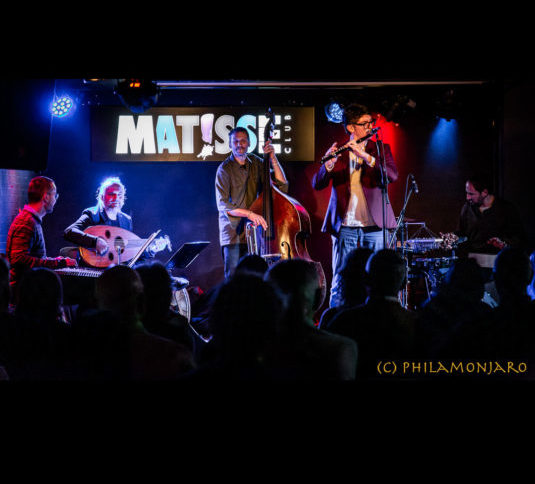
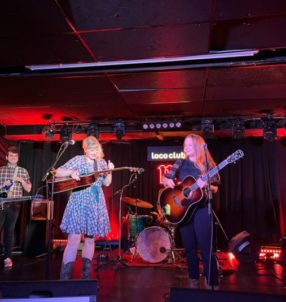

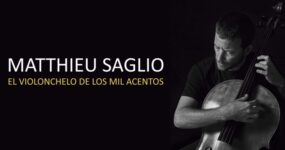
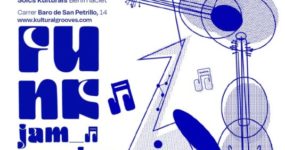
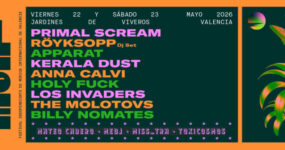


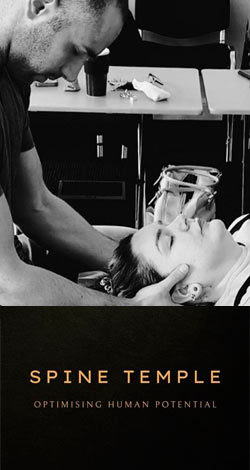















Leave a comment